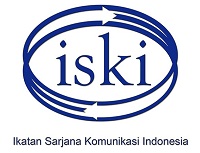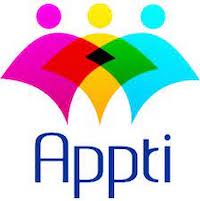Peningkatan Peran dan Performan Inovator untuk Pengembangan Sumber Daya Manusia Pedesaan
Abstract
Keywords
Full Text:
PDF (Bahasa Indonesia)References
A World Bank Country Study. 1990. Indonesia: Strategy for A Sustained Reduction in Poverty. Washington DC: The World Bank.
Alfian.1986. Tranformasi Sosial Budaya dalam Pembangunan Nasional. Jakarta: UIP.
Budiman, Arief. 1994. State and Civil Society in Indonesia. Clayton: Monash University.
Bunge, Frederica. 1983. Indonesia: A Country Study. Washington: Department of Army USA.
Chopra, Kadekodi and Murty. 1990. Participatory Development. London: Sage Publications.
Cohen, John M & Norman T. Uphoff. 1977. Rural Development Participatory: Concept andmeasures for Project Design, Implementation and Evaluation. Ithaca: Cornel University.
Eisenstadt. 1966. Modernisation: Protest and Change. Sydney: Prentice-Hall.
Elderige, Philip. 1994. NGOs and The State in Indonesia. in Budiman, Arief. State and Civil Society in Indonesia. Clayton: Monash University.
Escobal, Arturo. 1994. Encountering Development. Princeton: Princeton University Press.
Gatra. 1998. Tantangan Pembangunan Indonesia. Jakarta: PT Tempo. Agustus, 1998.
Jayasuriya, L and Lee, Michael. 1994. Social Dimensions of Development. Western Australia: Curtin University of Technology.
Korten, David C. 1986. Community Organisation and Rural Development: A Learning Process Approach. in Okamura Y. Jonathan. Participatory Approaches to Development: Experiences in the Philippines. Manila: De la Salle University.
Lele, Uma. 1975. The Design of Rural Development Lessons from America. Ballimore: John Hopkins Press.
Nair, KS. and White S.A. 1993. Perspective on Development Communication. London: Sage Publications.
Okamura Y. Jonathan. 1986. Participatory Approaches to Development: Experiences in the Philippines. Manila: De la Salle University.
Saha, R., G.P. Ghosh, and P.B. Roy. 1993. Role of Libraries in Rural. in Nair, KS. and White S.A. Perspective on Development Communication. London: Sage Publications.
Sinha, P.R.R. 1976. Communication & Rural Change. Singapore: AMIC.
Uphoff, Norman T., Cohen. J., and Goldsmith. 1979. Feasibility and Application of Rural Development Participation : A State of Art Paper. Ithaca: Cornell University.
Windahl, S., Signitzer, B.H., & Alson, T. 1992. Using Communication Theory. London Sage.
DOI: https://doi.org/10.29313/mediator.v2i1.712
Refbacks
- There are currently no refbacks.

This work is licensed under a Creative Commons Attribution 4.0 International License























